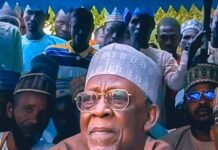Democracy and the struggle for power control, by Engr. Bello Gwarzo Abdullahi, FNSE
Democracy, as a system of governance, epitomizes the collective will of the populace, serving as a guiding principle that shapes the political landscape. Within this framework, the majority exerts influence, yet democracy also upholds the protection of the minority’s right to voice dissenting opinions. The acquisition of authority in a democratic society is a multifaceted process, characterized by intricate nuances and complex dynamics.
Individuals and factions engage in a sophisticated interplay, utilizing various strategies such as political maneuvering, forging strategic alliances, and employing persuasive rhetoric to establish dominance and wield influence, all in the pursuit of electoral victory.
READ ALSO: Politics and management of expectations, by Engr. Bello Gwarzo Abdullahi, FNSE
The fundamental values that form the foundation of democratic governance should not be underestimated. Values such as equality, freedom, and justice serve as the cornerstone upon which democracy is constructed. Rather than being overshadowed by the relentless pursuit of power, these values should seamlessly harmonize, fortifying the democratic framework of society.
The discourse on democracy has long been a contentious subject, particularly evident in the ongoing power struggles among different regions within a nation. For example, in Nigeria, the debate on zoning has been a focal point of contention, underscoring the challenges encountered in fostering a cohesive political environment.
The quest for power in Nigeria can be traced back to the nascent stages of political party formation. Ethnic, religious, and sectional politics have significantly impacted the country’s political landscape, resulting in conflicts, defections, and other impediments related to power dynamics. The crux lies in how these challenges are navigated.
Despite the tumult among politicians, there exists a compelling imperative for unity grounded in shared values and objectives. Embracing Nigeria’s diverse religious and cultural milieu is imperative for nurturing cohesion and solidarity among its populace.
By prioritizing mutual respect and collaboration, Nigerians can leverage their collective strengths to address pressing issues – security, economy, infrastructure, and the welfare of citizens.
It is essential for Nigeria to surmount its challenges by reflecting on its history and endeavoring to build a unified and inclusive society where all regions can prosper collectively.
Upholding the tenets of democracy, forging alliances, and eschewing coercive or duplicitous tactics in the pursuit of power are pivotal strides towards ensuring that the voices of the majority are not solely heard but also revered in the democratic process.
Only through a concerted effort to comprehend and tackle these intricacies can Nigeria advance towards a future characterized by concord and prosperity. This embodies our challenge, and the sooner we acknowledge it, the better.
bgabdullahi@gmail.com
Follow the Neptune Prime channel on WhatsApp:
Do you have breaking news, interview request, opinion, suggestion, or want your event covered? Email us at neptuneprime2233@gmail.com





